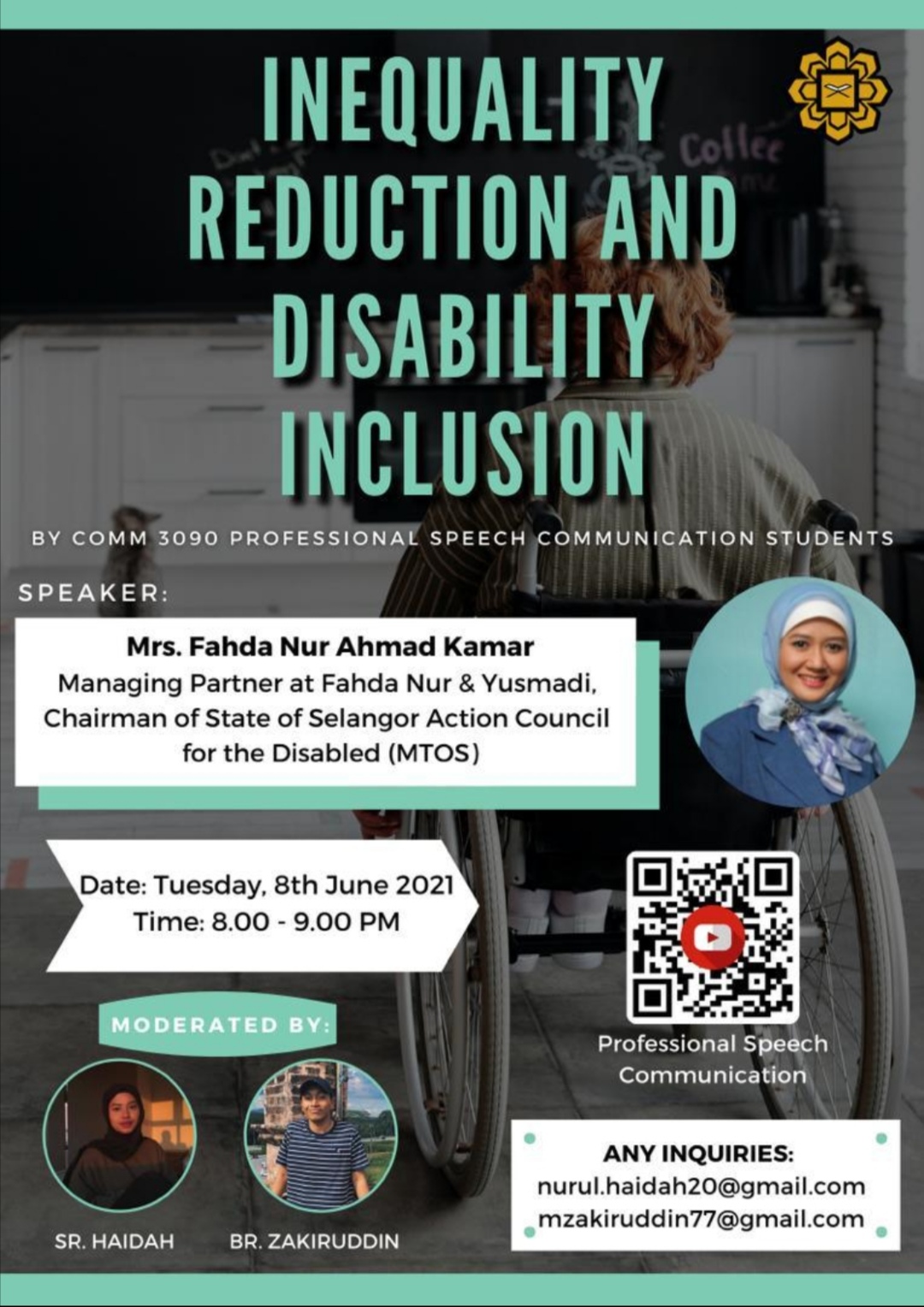By Hani Kartini Marzuki and Kho Ly Sgoh
GOMBAK 9 June 2021: Governments and organisations hope by 2030 to empower and encourage social, economic and political inclusion for all people regardless of age, gender, disability, race, ethnicity, origin or religion.
Speaking at a webinar on “Inequality Reduction (SDG 10) and Disability Inclusion” held on Tuesday (8 June), Mrs. Fahda Nur Ahmad Kamar said, “Malaysians do not have a high level of awareness on the needs of the disabled community. They are sympathetic but they are not empathetic.”
Fahda Nur Ahmad Kamar is a Managing Partner at Fahda Nur & Yusmadi and Chairman, State of Selangor Action Council for the Disabled (MTOS).
She felt that Malaysians do not successfully practice disability inclusion and their level is zero since people will not do things that do not benefit them, and they have no responsibility to help the disabilities.
Based on the World Bank (WB) and World Health Organisations (WHO) 2011 World Report on Disability, œpeople with disabilities experience inequality”for example when people with disabilities are denied equal access to health care, employment, education or political participation because of their disability.
In Malaysia, the NGO that was organised to advocate for people with disabilities is Damai Disabled Person Association Malaysia. It was built to provide disability awareness training specifically conducted for various government agencies, NGOs and the private sector.
The governments effort to be more inclusive in public schools through the Zero Reject Policy, introduced by former Education Minister, Dr. Mazlee Malik, was not very successful as parents and teachers did not fully embrace students with disability.
According to Fahda, the policy was made merely to allow disabled students into public schools without taking into account the needs of these students. She said that schools were not well equipped with teachers aids and proper training for school staff to assist special needs students through their learning process.
Fahda mentioned that the government should have followed the Zero Reject Policy with a œZero Neglect Policy to ensure that students with disabilities were not being neglected by the school community.
She cited that in Australia there is an organisation called Physical Disability Council of NSW which is a systemic disability advocacy group that seeks to influence or obtain positive long-term reforms that eliminate obstacles and discriminatory practices to ensure persons with disabilities’ collective rights and interests are maintained.
On government’s policy and its effort to be more inclusive of persons with disabilities (PwDs) in schools, Fahda said there should be a total reform in the governments Pendidikan Khas module where the methodology should be tested out and improved to cater to the needs of PwDs.
In terms of the execution of the policy, Fahda said, œThe government must ensure that teachers are prepared, and if reformation needs to be done among teachers, it should be done. Teachers need to have a more optimistic and positive perception towards special needs children.
Fahda expressed her hopes that members of the society will play their role and take the opportunity to advocate and be the voice for the disabled, for the government to open more doors for the disabled to be in schools and the workforce.
Further, she encouraged students to learn more on the spectrum of disabilities, to have conversations about it, hold an educational campaign and to never stop advocating.
The webinar that lasted for almost 40 minutes and streamed through YouTube channel, was organised by IIUM students Haidah Halid and Muhammad Zakiruddin from Professional Speech Communication course (COMM 3090). ***
